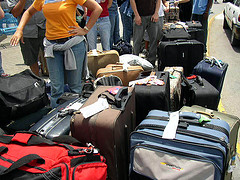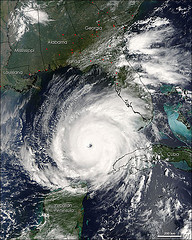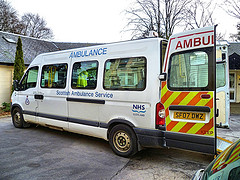 Traveling on your own is already tough, but traveling with children presents a whole new challenge. Here are some tips to ensure a smooth trip:
Traveling on your own is already tough, but traveling with children presents a whole new challenge. Here are some tips to ensure a smooth trip:
Preparation: There is nothing more important than making sure you have everything covered. When you are planning your travel itinerary, choose some places of interest which may interest your children so they will look forward to the trip. It’s no point dragging them through the grandest paintings in the history of the world when they would be much happier shaking hands with Mickey Mouse. From travel insurance to transportation, ensure that you attend to every detail.
Packing: Many parents try to pack as much stuff as possible so the children will feel “at home†even when they are thousands of miles away. When you go on a holiday, most likely, you will buy souvenirs and other products. If your luggage is already full and exceeds the maximum check in weight imposed by the airline, you will have to pay a penalty. If your children are old enough, it’s a good idea to get them their own luggage or knapsack. Don’t bring too many clothes because laundry service is available in most places. Try to travel as light as possible.
Emergencies: Some people fail to consider the possibility of emergencies when traveling. Accidents, injuries, and illnesses can happen, even on holidays. It’s important that you have all the necessary medication to treat such common minor illnesses like cold, fever, tourist tummy, and motion-sickness because children or adults can fall ill during travel. A travel-sized first-aid kit is highly recommended. To cover against more serious emergencies, it will be a great to get travel medical insurance for the whole family.
Travel Insurance: Speaking of emergencies, it is always a good idea to prepare for unexpected events, especially when traveling with children. Many travel insurance policies offer great coverage specifically for kids, and oftentimes kids are covered free with an adult.
Lodging: Explore lodging options according to the needs of your family. If you have a family of eight, you may want to consider renting an apartment instead of a few hotel rooms. Other than saving some money, it will be easier to coordinate your party in a single apartment rather than several hotel rooms. Check the facilities and services to ensure the apartment or hotel rooms are suitable for your family. Try to book ahead, especially during peak season.
Traveling: Whether taking an airplane, train, ferry, or any other form of transportation, it’s your responsibility to make sure your children are not causing a ruckus. On a long flight or train ride, bring some books or games so the children have something to do on their own. It’s also a good idea to bring their favorite snacks and candies, just in case they need something to munch on.
With the right preparation and spirit, traveling with children can be a richly rewarding experience.
Photo credit: https://www.flickr.com/photos/benfrantzdale/

 Traveling anywhere is tricky enough without having to worry about age restrictions, but there are some circumstances when age actually matters, especially in the matters of travel insurance and limitations.
Traveling anywhere is tricky enough without having to worry about age restrictions, but there are some circumstances when age actually matters, especially in the matters of travel insurance and limitations. Many people are traveling by air these days, and there is plenty of baggage for the airport crew to manage. Sometimes, those who are handling the baggage may make a mistake or two, and this can result in
Many people are traveling by air these days, and there is plenty of baggage for the airport crew to manage. Sometimes, those who are handling the baggage may make a mistake or two, and this can result in  Sometimes, you cannot prepare for the inevitable. No matter how perfectly planned your vacation is, some things are beyond your control. Bad weather conditions like hurricanes and severe thunderstorms can force you to cancel your vacation. What can you do?
Sometimes, you cannot prepare for the inevitable. No matter how perfectly planned your vacation is, some things are beyond your control. Bad weather conditions like hurricanes and severe thunderstorms can force you to cancel your vacation. What can you do?
 Many unexpected things can happen when a person is traveling. Other than accidents, a traveler may lose their possessions to theft. Being a victim of theft is something many travelers experience, especially if traveling to a foreign country. Locals in a foreign country have the perception that tourists bring a lot of cash and valuables along, and this makes travelers a common target for thieves.
Many unexpected things can happen when a person is traveling. Other than accidents, a traveler may lose their possessions to theft. Being a victim of theft is something many travelers experience, especially if traveling to a foreign country. Locals in a foreign country have the perception that tourists bring a lot of cash and valuables along, and this makes travelers a common target for thieves. Backpacking is becoming a more popular option among young travelers these days, because it enables them to discover many new places and cultures around the world. Backpackers travel on a budget, and they are exposed to higher risks of accidents, injuries, and illnesses: it is important for every backpacker to get a good backpacker travel insurance policy to provide sufficient compensation for expenses that may be incurred in the event of emergencies.
Backpacking is becoming a more popular option among young travelers these days, because it enables them to discover many new places and cultures around the world. Backpackers travel on a budget, and they are exposed to higher risks of accidents, injuries, and illnesses: it is important for every backpacker to get a good backpacker travel insurance policy to provide sufficient compensation for expenses that may be incurred in the event of emergencies.
 When people retire, they have more time to pursue their interests and dreams. They also have more time to travel. Blessed with higher spending power and other incentives, more and more senior citizens are traveling. Here are some useful travel tips for senior citizens, including the purchase of senior travel insurance:
When people retire, they have more time to pursue their interests and dreams. They also have more time to travel. Blessed with higher spending power and other incentives, more and more senior citizens are traveling. Here are some useful travel tips for senior citizens, including the purchase of senior travel insurance: Nowadays, the majority of airlines issue electronic airline tickets rather than traditional paper airline tickets. This has been the trend for quite some time and there are good reasons why more and more airlines are converting to e-tickets. Other than lower airfares, airlines and passengers will be delighted with electronic airline tickets because they can never be stolen or lost, unlike paper airline tickets.
Nowadays, the majority of airlines issue electronic airline tickets rather than traditional paper airline tickets. This has been the trend for quite some time and there are good reasons why more and more airlines are converting to e-tickets. Other than lower airfares, airlines and passengers will be delighted with electronic airline tickets because they can never be stolen or lost, unlike paper airline tickets.